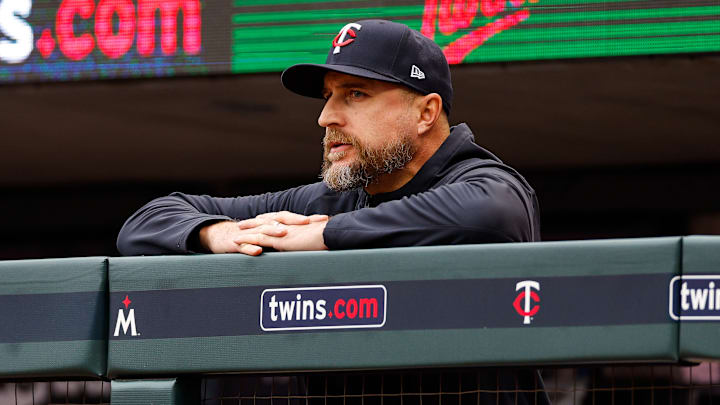One of the biggest frustrations fans and pitchers have had over the years is Rocco Baldelli's knack for pulling a starter early. So far this year he had sort of pushed back on that trope, letting Pablo Lopez pitch deep into a brilliant Opening Day start and allowing Joe Ryan to do the same a day later.
The same cannot be said for Bailey Ober.
On Monday Rocco pulled Ober from a game the Twins were winning 2-1 after just five innings and 68 pitches. To be fair, the last time Ober was on the mount Minnesota lost 11-0 in Kansas City, but this seemed to be more along the lines of the guy fans were expecting to see.
It was a decision that backfired immediately, which has made it an easy one to criticize.
After Rocco turned to the bullpen, Steven Okert gave up the tying run and an inning Jay Jackson allowed a pair of home runs that turned the game into a 4-2 loss. The Twins' bat went quiet -- again -- but the decision to pull Ober that has fans just as irked.
Rocco Baldelli explains why he pulled Bailey Ober after only 68 pitches vs. Dodgers
After the game Rocco Baldelli offered up an explanation for pulling Ober as early as he did.
"At that point in the game, I don't really care about pitch count. I just want to know what's going on in the game. We had a one run lead, we're going to our bullpen at some point in the near future once you get to that point in the game," Rocco said.
He's not wrong, but there might have been a better way to ease Ober out of his start. Rather than pulling him right away, it might have made sense to have the bullpen ready but allow Obert to got hitter to hitter before yanking him out.
That being said, the Dodgers were sending up Shohei Ohtani, Freddie Freeman, and Will Smith -- three of the team's best hitters who would have been seeing Ober for a third time. It's also worth mentioning that the decision to lean on the bullpen at that point likely had something to do with the fact that the unit ranked first in the entire league.
It didn't work, though, as Ohtani and Freeman while Smith all batted in the tying run. While Rocco defended Ober's start, he also stood up for Okert despite the rough outing.
"Steven [Okert] threw the ball fine, they didn't hit a ball on the barrell that inning. The best ball they hit was an out, one of the good plays that was made tonight," Rocco said. "We just didn't get the results that we wanted.
"Bailey really did his job today. He threw the ball very well."
— Bally Sports North (@BallySportsNOR) April 9, 2024
Rocco gives his thoughts after the loss to the Dodgers. #MNTwins pic.twitter.com/TCtizDtWvN
As hard as it is to try and rationalize the decision in hindsight, especially given the baggage Rocco carries with how he manages starters, there's logic behind the move. Beyond how good of a bet it seemed to lean on the bullpen, Ober was coming off a start against the Royals where he lasted less than three innings.
Despite the first inning run allowed, Ober washed that first start out of his system and dominated the next four innings. By taking him out after the fifth, Rocco ended Ober's night on a high note he will carry into his next start, rather than risking him getting his confidence rocked while giving up a lead.
The long game is essentially what Rocco played on Monday, even if it meant a short start for Ober.
